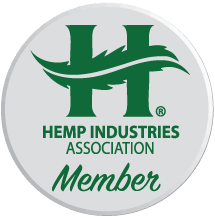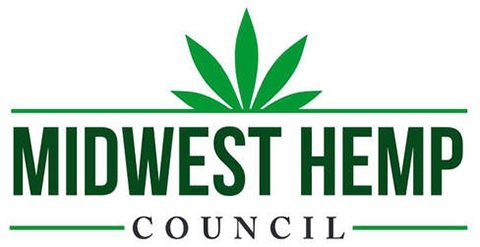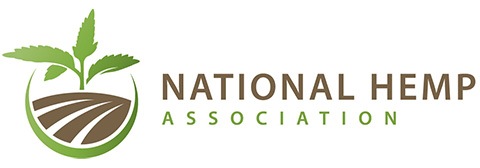


More Americans are reportedly looking for new beverage options when they want to relax. Those in the hemp drinks space hope that they can entice such consumers with beverages infused with CBD or other hemp-based ingredients. The CBD beverage market in particular appears to be benefiting from two related factors: consumers moving away from the pandemic-triggered spike in drinking over the past two years, as well as a slight, but decades-long decline in U.S. alcohol consumption.
Additionally, some data indicates that growth in consumers searching out CBD beverages is not a uniquely American phenomenon. According to a report published last July by the market research firm Facts and Factors, global demand for CBD-infused beverages is expected to grow from $3.4 billion in 2020 to reach $14.6 billion by 2026, with a compound annual growth rate (CAGR) of 27.5%.
Some major food and beverage companies, sometimes in conjunction with larger cannabis businesses, have launched their own beverage brands that contain CBD or other hemp-derived ingredients. In January 2021, Truss CBD USA, a joint venture created by Canadian cannabis firm HEXO Corp. and the Molson Coors Beverage Company, announced the launch of Veryvell, a line of non-alcoholic, sparkling CBD beverages. Initially, the products were launched exclusively in Colorado. However, several months later in October, Veryvell said it was expanding its CBD beverage line into 17 states.
Earlier this month, meanwhile, beverage giant PepsiCo announced the debut of its new, hemp seed oil-infused energy drink, Rockstar Unplugged. According to a company press release the drink “focuses less on providing a big hit of energy and more focus on enhancing good vibes with ingredients like hemp seed oil and B vitamins.” It should be noted that Rockstar Unplugged does not contain CBD, but rather hemp seed oil derived from pressing the plants’ seeds, or grain.
Despite these initial forays into the hemp-derived beverage sector, analysts say that most big brands are waiting on the sidelines and allowing independent small businesses to pave the way. “Similar to the spiked-seltzer space, you’re going to see an explosion of small boutique brands,” Bryson Waterman, an associate partner at A.T. Kearney, an international management consulting firm, told Retail Brew this past September. “You’re going to see the big players in the marketplace sit back and allow these small growing brands to navigate the hurdles of regulation and overcome the complexities.”
As we mentioned in a recent Hemp Market Insider report, the overall hemp-CBD industry has been hampered by what one industry observer described as “regulatory purgatory due to the snail-paced progress from the U.S. Food & Drug Administration (FDA),” which has to this point declined to allow CBD and other hemp-derived cannabinoids to be added to foods and beverages or marketed as dietary supplements.
In other words, while CBD is legal under federal law, having been removed from the U.S. government’s list of controlled substances by the 2018 Farm Bill, it is technically not permitted to add the cannabinoid to food and beverage products. However, little enforcement against such actions has been carried out by FDA or other federal agencies, resulting in both big businesses and smaller entrepreneurs testing the waters, so to speak.
Hilary McCain sees some benefits to the FDA’s inaction. McCain is the founder and CEO of Sweet Reason, which produces and sells sparkling hemp-derived CBD beverages across the U.S. “There’s a silver lining around the FDA regulations taking so long to pass.” she said. “It gives entrepreneurs and smaller businesses time to grow their brands and their consumer base, prior to FDA regulations passing. Because once the FDA regulations pass, everybody will be in this industry and it will become a lot more competitive.”
The CBD beverage market, McCain said, has been growing steadily, but her business experienced a strong uptick over the last couple of months. The COVID pandemic, she noted, “was especially hard” on brick-and-mortar retail stores, where people were not lingering while out shopping and avoiding their usual impulse or new-product purchases.
However, she said, “our January sales were double that of December. We’re expecting a lot of growth in the coming months, especially now that California and New York have passed their hemp-CBD regulations, and now allow CBD in food and beverages.”
McCain said her shift into the CBD beverage space was part of a natural evolution. A veteran of the mainstream food and beverage industry, McCain moved into the hemp-derived CBD beverage sector after seeing all her traditional industry mentors and advisors pivot to cannabis. Her company buys broad-spectrum CBD from a farm in upstate New York, then makes the CBD water soluble for use in beverage formulations.
“Coming out of COVID, people are looking for new products that are exciting,” McCain told Hemp Benchmarks. “And of course, stress is at an all-time high,” she said. “People are interested in anything that’s going to help them relax at the end of the day.” McCain characterized her products as “a natural alcohol alternative.”
Other entrepreneurs do not see CBD and alcohol as mutually exclusive. In Wisconsin, Justin Hopf and Matt Swanson spent several years growing hemp before starting Drinkin’ Buds Hemp, a brand of hemp-derived, CBD-infused cocktail drink mixes. According to Hopf, he and Swanson soon discovered that they would have to specialize if they were to succeed in the highly competitive hemp-CBD market. “Once we got into it a little bit further we realized that, in order to make a profit, we had to be vertically integrated, have our own brand and product as a way to make a margin,” he remembered. “After some debate about what that product would be, we wanted to find a niche. One thing that hadn’t been tackled yet was around the alcohol cocktail mix.”
So, in early 2021, Hopf and Swanson created Drinkin’ Buds Hemp. “It started with an Old Fashioned mix, a Wisconsin classic cocktail,” Hopf told Hemp Benchmarks. “Over the summer we added a Margarita mix and soon we’re launching our Bloody Mary mix.” Hopf noted that his line of CBD cocktail mixes are seeing slow, but steady improvement in sales.
Hilary McCain is ready for the CBD beverage sector to take off, assuming the FDA eventually decides to allow CBD to be added to food and drinks. As with other hemp-derived products, however, CBD beverage producers are still working to overcome misconceptions and lingering stigmas about all things cannabis.
“There’s definitely a lot of confusion about CBD and about what it does for you and what sort of effect people should expect,” she noted. “The fact that CBD is affiliated with cannabis can hurt the industry and the products overall, because people expect to feel high from CBD, and you’re not going to feel high from CBD. That association and expectation is something that we need to work to educate consumers on.”
Justin Hopf said his company’s biggest challenge so far has been marketing and simply getting the word out that their products exist. “We’re hamstrung from promoting CBD on different social platforms,” he said, “but we’re working through that; self-distributing through bars and restaurants, looking at different distribution opportunities, to get a broader spread of our products going forward.”
The overall CBD beverage industry, he continued, “is new and it’s still being defined. There’s no dominant brand, it’s pretty fragmented, and I think there’s a lot of opportunity for small businesses … to be a brand of choice, instead of everything going to your large conglomerates taking over the market. My hope is that there’s an opportunity for the little guy to be part of the expansion and that people spread the word and give us a chance.”


